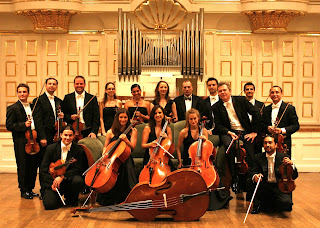CerritosInk
Reviews of shows from the Cerritos Center for the Performing Arts and other local venues published by the Los Cerritos Community News. The writer and paper are in their twentieth year of covering these events.
About Me

- Name: Glen Creason
- Location: Fear City, Ca., United States
"My name is Addison DeWitt. My native habitat is the theater. In it I toil not, neither do I spin. I am a critic and commentator. I am essential to the theatre - as ants to a picnic, as the boll weevil to a cotton field." George Sanders in "All About Eve" These reviews are from my twenty-two years covering shows at the Cerritos Center for the Performing Arts. There are about 500 in all starting with Whitney Houston in 1993 until the Community News decided not to publish the reviews I wrote in 2015 and 2016. I did not get digital until 2005 that appear here but there were 12 years of reviews in hard copy before that time.. Many shows were magnificent and some hard to get through but there is nothing like hearing music live in a great hall lilke the CCPA
Sunday, February 26, 2012
Saturday, February 18, 2012
The Assads February 15, 2012
Monday, February 13, 2012
Perla Batalla and Eclipse Quartet February 4, 2012
When I heard that Perla Batalla was commissioned to commemorate the fascinating and long-worded new exhibit “In Wonderland: The Surrealist Adventures of Women Artists in Mexico and the United States” I had to take a trip down Wilshire boulevard to hear surrealism put to words and music by one of my favorite singers. Ms. Batalla is not only a gifted singer but also a restless explorer of art and culture who is never afraid to try something new and challenging. Certainly surrealist art is not for everybody but seeing this exhibit might change a few minds that think art is something you completely understand the first time you glance at a canvas.
The show was opened by the excellent and not for the faint of heart Eclipse Quartet who played two extremely avant garde pieces by Meredith Monk and Ruth Crawford Seeger that expanded all sorts of musical boundaries and scales. While thought provoking and mind-expanding these pieces made me long for something more familiar and so it was I cheered mightily when Perla Batalla took her elegant bare-foot strides toward the microphone after an arresting percussive introduction by Pete Korpela. She started with a lyrical and lovely set of songs from her Mestiza Album that were like a warm spell in winter. “Don’t Say You Did This To Me,” was sweetly familiar with accompaniment by David Batteau, the man who co-wrote (with Perla Batalla) all of the songs in the program. Dona Batalla was in fine voice and stretched it out a bit on the bittersweet “Cine de Llantos,” “Tears of the Sun…” and “Iberia” which seem expressly composed for her strong soprano voice that imbues passion into these songs of the melding of Latin and American cultures. An extremely fine band provided a strong platform for “the voice” with pianist John Beasley taking gorgeous jazz journeys throughout the concert. After this limbering up with some familiars Perla Batalla turned to some arresting new material that was
inspired by the exhibit and expressly created for this concert. In a rare treat the opening song was assisted by pop-music royalty in the accordion playing form of Van Dyke Parks who sprinkled some magic on the terrific “Mexican In Paris” that was evocative on several levels. This was followed by the mystical and deep “I Am (the Great Unreason) that demanded and got some powerhouse singing. The remaining material was mostly inspired by one of the great romances of the 20th century between the artists Diego Rivera and Frida Kahlo who seem to have charged Batalla-Batteau with musical romantic passion. “Diego My Destiny” was sung with an ache in the voice that expressed the deep but doomed Kahlo love for the untamable Senor Rivera but “Tell Me You Don’t Love Me Anymore” was one of those Batalla specialties that just broke your heart and made an entire concert hall imagine such a painful but deep love between the two. Amazing that in this scene of abstract expressionism I would find very real tears forming in my eyes. The finale returned us to happier times with the Eclipse Quartet joining Batalla and band on stage for a joyful tour of “My Blue House” which demonstrated the richness of the art and love that these Mexican lovebirds shared despite the greatest of obstacles.








